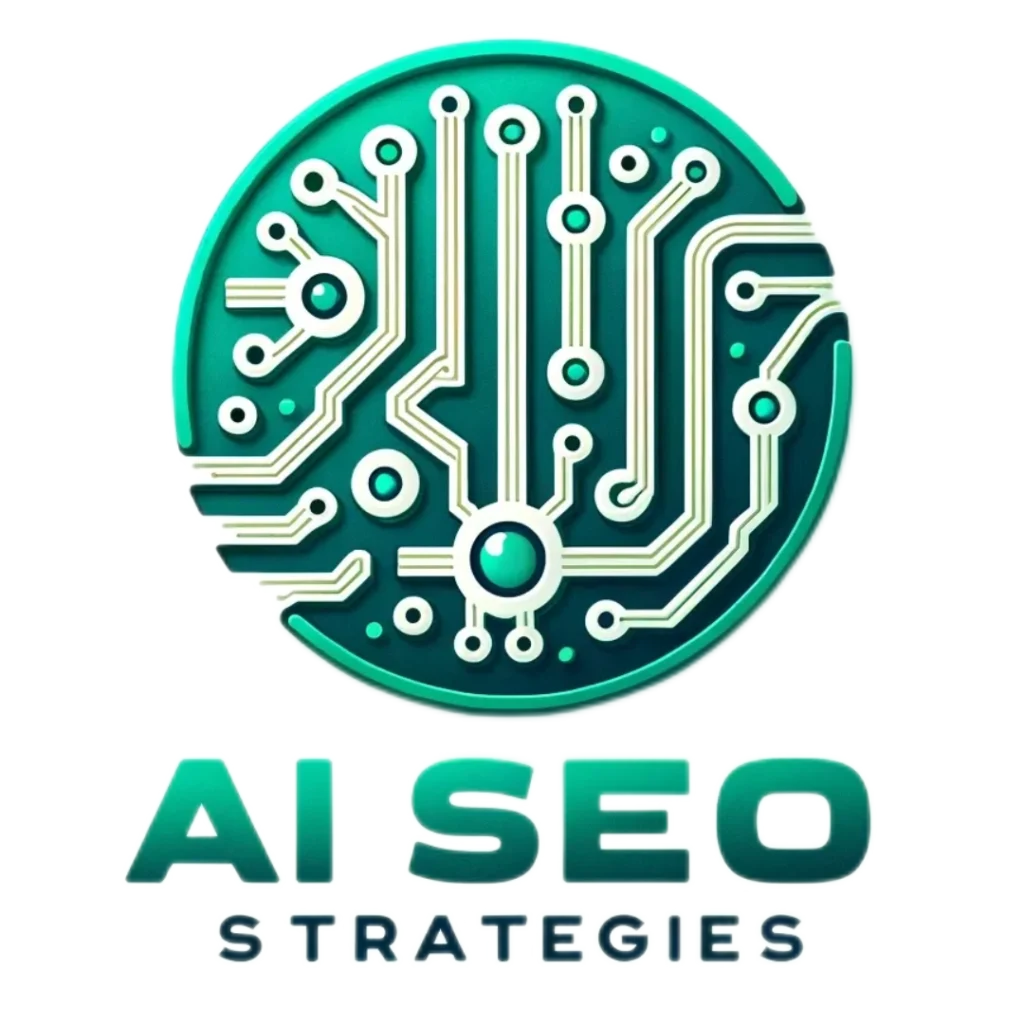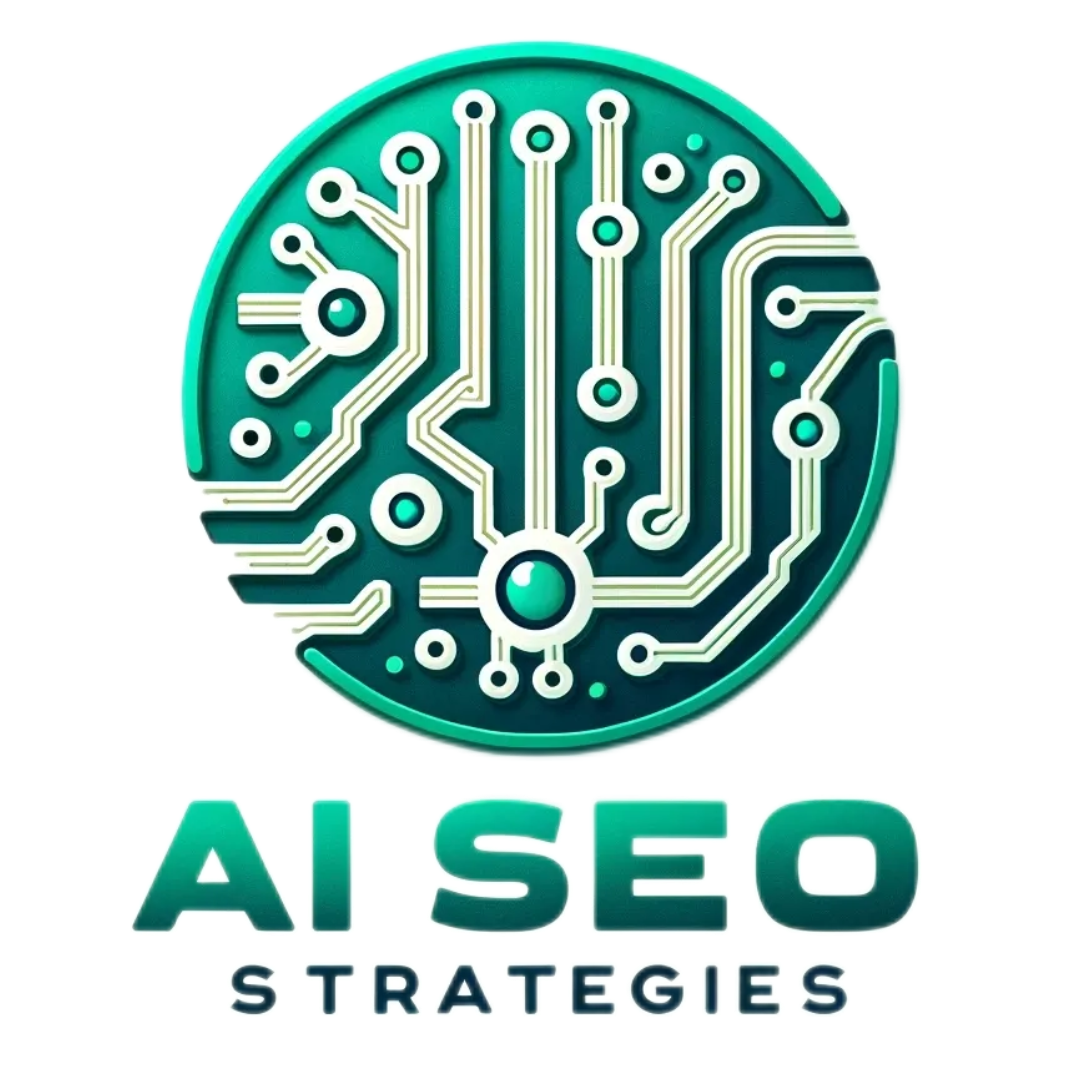The digital landscape is rapidly evolving, and AI is at the forefront of this transformation. As content marketing becomes increasingly data-driven, understanding and mastering advanced AI techniques is crucial for any business looking to maintain a competitive edge. AI SEO Strategies will help you delve into the sophisticated AI tools and strategies that are revolutionizing content creation, distribution, and personalization, providing insights on how to leverage AI to improve your content strategy.
Understanding AI Driven Content Strategy
AI Driven content strategy involves the use of artificial intelligence to optimize content creation, curation, distribution, and analysis. This approach goes beyond simple automation, integrating machine learning and advanced analytics to make content marketing more efficient, targeted, and effective.
The main advantages of AI in content strategy include increased efficiency, improved personalization, data-driven decision-making, and the ability to quickly adapt to changing trends. AI tools help marketers produce content that resonates with their target audience, enhancing engagement and driving conversions.
The Growth of AI in Content Creation
AI’s journey in content creation began with basic automation tools, such as spell checkers and grammar correctors. As AI technologies evolved, so did their applications in content strategy, leading to the development of more advanced tools capable of generating entire articles, optimizing content for SEO, and predicting content trends.
Today, AI is an essential component of content strategy, providing tools that not only automate mundane tasks but also enhance creativity, personalize content, and deliver insights that were previously impossible to obtain. The integration of AI has shifted content strategy from a reactive to a proactive process, where data and insights guide every decision.
Foundational AI Techniques in Content Strategy
Before diving into advanced techniques, it’s essential to understand the foundational AI tools and methods that underpin a successful content strategy.
AI for Keyword Research and SEO Optimization
AI tools like SEMrush and Ahrefs analyze vast amounts of search data to identify high-performing keywords and optimize content for search engines. These tools use machine learning to continuously refine their algorithms, ensuring that content is always optimized for the latest SEO trends.
AI in Content Creation and Curation
AI has revolutionized content creation, with tools like Jasper and Copy.ai generating high-quality text that mimics human writing. AI is also crucial in content curation, helping marketers examine through large volumes of information to find and share the most relevant content with their audience.
AI-Powered Content Distribution and Promotion
Once content is created, AI helps distribute it to the right audience at the right time. Tools like HubSpot use AI to manage social media posts, email campaigns, and other distribution channels, optimizing for engagement and reach.
Advanced AI Techniques in Content Strategy
As AI continues to evolve, new techniques are emerging that push the boundaries of what’s possible in content marketing. Here are some of the most important advanced AI techniques you should be integrating into your content strategy:
Natural Language Processing (NLP) for Content Personalization
NLP is a branch of AI that enables machines to understand and interpret human language. By using NLP, marketers can create highly personalized content that speaks directly to individual users’ needs and preferences. NLP analyzes text to determine context, sentiment, and intent, allowing for content that feels tailor-made for each reader.
Predictive Analytics for Content Planning
Predictive analytics uses historical data and AI algorithms to forecast future trends. In content strategy, this means predicting what topics, formats, and channels will perform best in the future. Tools like Google Analytics and IBM Watson provide predictive insights that help marketers plan content that’s likely to succeed.
AI-Generated Content Ideas and Headlines
Coming up with fresh content ideas and compelling headlines is a challenge for many marketers. AI tools like BuzzSumo and Portent’s Content Idea Generator can analyze what’s trending and suggest ideas that are more likely to resonate with your audience. AI can also generate headlines that are optimized for clicks, using algorithms that predict which phrasing will be most effective.
Automated Content Summarization
With the growing volume of content, summarizing long-form articles and reports is becoming increasingly important. AI Driven summarization tools like SMMRY and Resoomer can condense lengthy content into concise summaries without losing key information. This is particularly useful for creating executive summaries, email newsletters, and social media posts.
Sentiment Analysis for Audience Insights
Sentiment analysis is a technique that uses AI to assess the emotions expressed in text. By analyzing social media posts, reviews, and other user-generated content, sentiment analysis tools can provide insights into how your audience feels about your brand or specific topics. This data can inform content creation, ensuring that your messaging resonates positively with your audience.
AI for Hyper-Personalized Content Experiences
Hyper-personalization involves using AI to create individualized experiences for each user. This goes beyond segmenting audiences into broad categories instead, AI analyzes real-time data to deliver content tailored to each user’s behavior, preferences, and past interactions. Dynamic content delivery systems, such as those used by Netflix or Amazon, are prime examples of hyper-personalization in action.
Deep Learning for Content Enhancement
Deep learning, a subset of machine learning, involves neural networks that mimic the human brain’s structure and function. In content strategy, deep learning algorithms can enhance the quality of content by improving natural language generation, understanding complex patterns in data, and even creating multimedia content such as images and videos.
AI Driven Content Localization
For businesses operating in multiple regions, content localization is crucial. AI can automate the translation and localization process, ensuring that content is culturally relevant and linguistically accurate. Tools like Smartling and Unbabel use AI to streamline localization, reducing the time and cost involved while maintaining quality.
AI for Voice and Conversational Content
With the rise of voice search and smart assistants, optimizing content for voice is becoming increasingly important. AI helps create content that is easily discoverable via voice search and can also be used to develop conversational interfaces, such as chatbots, that engage users in real-time. Tools like AnswerThePublic help identify questions and phrases commonly used in voice search, allowing marketers to create content that meets these needs.
Visual Content Creation with AI
Visual content, including images, videos, and infographics, is essential for engaging audiences. AI tools like Canva and Adobe Sensei assist in creating high-quality visual content quickly and efficiently. AI can also analyze which visuals resonate best with your audience, helping you refine your visual content strategy over time.
AI Content Creation Tools
AI content creation tools have become essential for anyone involved in digital marketing or content production. They offer a range of features, from generating written content to optimizing visuals and improving SEO. Here’s a closer look at some of the leading tools in the industry:
Jasper
Jasper is a versatile AI writing tool designed to generate high-quality content quickly. It offers templates for various content types, including blog posts, product descriptions, and social media updates. Jasper’s AI is trained on a vast dataset, enabling it to produce text that closely mimics human writing. It’s particularly useful for generating long-form content, creative writing, and even video scripts. Ideal for content creators and marketers who need to produce large volumes of content without compromising on quality.
Copy.ai
Copy.ai is an AI writing assistant that helps users create compelling content across multiple platforms, from ads and product descriptions to blog posts and emails. With a user-friendly interface and a wide variety of content templates, Copy.ai simplifies content creation. It leverages advanced machine learning algorithms to generate engaging and relevant text tailored to the user’s needs. Perfect for businesses and individuals looking to overcome writer’s block and produce creative, conversion-focused content.
TextBuilder.ai
TextBuilder.ai is a powerful AI tool specializing in generating SEO-optimized content for websites, blogs, and social media. It focuses on creating content that is not only engaging but also highly relevant to the target audience. TextBuilder.ai uses sophisticated algorithms to analyze user input and generate content that is both accurate and compelling, making it a valuable tool for businesses looking to scale their content production. Best suited for companies that require consistent, high-quality content at scale, particularly for SEO-driven campaigns.
ChatGPT
Developed by OpenAI, ChatGPT is a conversational AI model that excels at generating human-like text. It’s versatile and can be used for a wide range of content creation tasks, from drafting articles to engaging in customer service conversations. ChatGPT’s ability to understand context and generate coherent, contextually appropriate text makes it a valuable tool for generating diverse content types, including complex technical writing and creative storytelling. Ideal for businesses and content creators who need a highly adaptable tool that can handle various content types and conversational interfaces.
Canva
Canva is a widely used design tool that has integrated AI to enhance its functionality. While Canva is primarily known for graphic design, it now includes AI-powered features that simplify the creation of visual content, such as social media graphics, presentations, and infographics. Canva’s AI assists users by suggesting design elements, layouts, and even complete templates based on the type of content being created. Its drag-and-drop interface makes it accessible to users with no prior design experience. Perfect for marketers and small business owners who need to create professional-quality visual content quickly and affordably.
Surfer SEO
Surfer SEO is an AI Driven tool that focuses on optimizing content for search engines. It analyzes top-performing pages in real-time to provide actionable insights on how to improve content rankings. SEO offers a range of features, including keyword analysis, content audit, and SERP (Search Engine Results Page) analysis. It provides detailed recommendations on keyword density, content structure, and more to ensure content is fully optimized for SEO. Essential for content marketers and SEO specialists who want to enhance the visibility and ranking of their content on search engines.
Writesonic
Writesonic is an AI-powered tool designed to create marketing content quickly and efficiently. It’s known for generating persuasive copy, such as landing pages, ads, and product descriptions. Writesonic’s AI offers templates for various content types and includes SEO optimization features, ensuring the content is engaging and search-engine friendly. Ideal for businesses focused on conversion-driven content that needs to be produced rapidly without sacrificing quality.
Challenges in Implementing AI Driven Content Strategy
While AI Driven content strategies offer numerous benefits, including enhanced efficiency, personalization, and data-driven insights, their implementation comes with a unique set of challenges. Understanding and addressing these challenges is crucial for businesses to fully leverage the potential of AI in their content marketing efforts.
1. High Initial Costs and Resource Allocation
Implementing AI Driven content strategies requires significant financial investment in AI tools, software, and infrastructure. This can be a substantial barrier for small businesses or startups with limited budgets. The cost of licensing, integrating, and maintaining AI platforms can add up quickly, making it a considerable upfront investment.
Beyond financial costs, there’s also the need to allocate human resources to manage and operate these AI tools. This may involve hiring or training staff to work with AI technologies, which can further strain resources, especially in smaller organizations.
2. Technical Expertise and Skills Gap
One of the most significant challenges in adopting AI Driven content strategies is the skills gap. Many content teams lack the technical expertise required to effectively implement and manage AI tools. Understanding machine learning algorithms, natural language processing, and data analytics requires specialized knowledge that is often not part of traditional content marketing skill sets.
Bridging this skills gap requires substantial investment in training and development. Companies need to upskill their current workforce or hire new talent with the necessary expertise, both of which can be time-consuming and expensive.
3. Data Quality and Integration Issues
AI Driven content strategies rely heavily on data to function effectively. However, the quality of data can be a significant challenge. Inaccurate, incomplete, or biased data can lead to poor AI performance, resulting in content that misses the mark or even alienates the target audience.
Integrating AI tools with existing systems and databases can be complex. Companies often have to deal with legacy systems that may not be compatible with modern AI technologies, leading to integration challenges that can hinder the smooth operation of AI Driven content strategies.
4. Ethical Concerns and Bias in AI
AI systems are only as good as the data they are trained on. If the training data contains biases, these can be perpetuated and even amplified by AI. For example, AI might inadvertently produce content that reinforces stereotypes or overlooks certain demographics, leading to ethical concerns and potential backlash.
There are also concerns about transparency and accountability in AI Driven content creation. As AI-generated content becomes more common, questions arise about who is responsible for the content produced particularly if it contains errors or is deemed inappropriate. This lack of clarity can create challenges in content management and governance.
5. Resistance to Change and Organizational Culture
Introducing AI into a content strategy often requires a shift in organizational culture, which can be met with resistance. Employees who are accustomed to traditional methods of content creation may be hesitant to adopt AI tools, fearing that these technologies could replace their jobs or devalue their expertise.
Overcoming this resistance involves clear communication about the benefits of AI and how it can enhance, rather than replace, human creativity. Leadership must foster a culture of innovation and continuous learning, where AI is seen as a tool that empowers content creators rather than a threat to their jobs.
6. Over-Reliance on AI and Creativity Concerns
While AI is excellent at generating content based on data, it may lack the creative nuance that human writers bring to the table. There is a risk that over-reliance on AI could lead to homogenized content that lacks originality or fails to connect on an emotional level with the audience.
Finding the right balance between AI automation and human creativity is crucial. Organizations must ensure that AI is used to enhance the creative process, not stifle it. This means allowing space for human writers to inject their unique voice and perspective into the content.
7. Keeping Up with Rapid Technological Advancements
AI technology is rapidly evolving, and keeping up with the latest advancements can be challenging for businesses. What’s cutting-edge today might be outdated tomorrow, requiring continuous investment in new tools and technologies.
Companies need to be agile and adaptable, ready to incorporate new AI developments into their content strategies. This requires ongoing education, training, and a willingness to experiment with new tools and approaches.
Conclusion
The integration of AI into content strategy is not just a trend, it’s a fundamental shift in how content is created, distributed, and analyzed. By embracing advanced AI techniques, businesses can stay ahead of the competition, delivering content that is more personalized, engaging, and effective. As AI continues to evolve, its role in content strategy will only become more significant, making it an essential part of any forward-thinking content marketing plan.
FAQs
What are the best AI tools for content strategy and their benefits?
Jasper, Copy.ai, and HubSpot are among the top AI tools for content creation, SEO, and distribution, offering benefits like enhanced efficiency, creativity, and personalization.
How does AI impact content marketing ROI?
AI improves ROI by optimizing content creation and distribution, enabling more effective targeting and personalization, and providing insights that help marketers make data-driven decisions.
Can AI completely replace human content creators?
While AI can automate many tasks, it lacks the creativity, emotional intelligence, and strategic thinking that humans bring to content creation. AI is best used as a tool to augment human creativity.
What are the risks in AI Driven content strategy?
Risks include potential biases in AI-generated content, ethical concerns around authorship and originality, and the danger of over-reliance on automation, which can stifle creativity.
How can small businesses benefit from AI Driven content strategy?
Small businesses can use AI to level the playing field, accessing tools that help them compete with larger companies by optimizing content creation, distribution, and analytics. AI can make content marketing more efficient and effective, even with limited resources.






